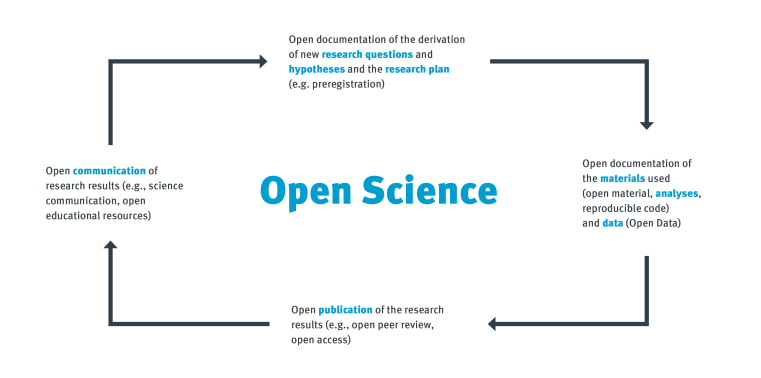Open Science
The University of Münster is committed to the principles of open science. Research transparency and reliability are essential criteria for good scientific practice and a basic prerequisite for the creation of publicly accessible and sound knowledge in all scientific disciplines. This applies to the entire research process – from carefully crafting research questions and developing a research plan, to documenting materials, analyses and data, to publishing and communicating the research findings.

The University of Münster sees itself as a pioneer in the pursuit of greater research reliability and accessibility. The Münster Centre for Open Science (MüCOS) will expand, network and integrate the existing interdisciplinary or subject-specific open science services into a comprehensive open-science approach at the University of Münster.
